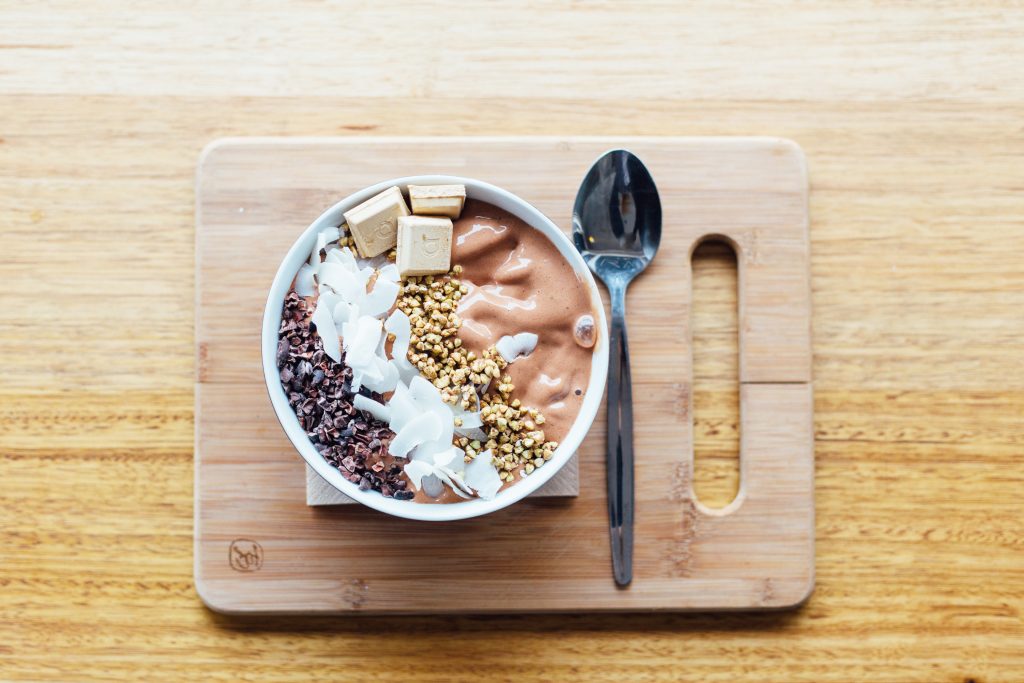Stupidly Easy Health Hacks You Need To Know About
Yep, you do have to eat breakfast.

Sometimes, the demands of being a student can distract you from your health. And if you don’t have a job, it can be a little bit harder to stay healthy.
Uni Junkee spoke with dietician Caroline Trickey to nab some health tips that won’t break the bank.
Eat More Water-Based Foods To Reach Your Daily Water Goal
For years, doctors and nutritionists have been telling us to drink at least eight glasses of water each day. But did you know that fruits and veggies also contain a lot of water? Therefore, Trickey says, if you eat a lot of them, you don’t need to drink a lot of water, as “that can be considered part of your fluid intake as well”. She suggests a minimum of five glasses of water for women and a minimum of seven glasses for men.
You can then boost your water intake by snacking on veggie sticks with hummus; mixing seasonal fruits with yoghurt and trail mix; including salads, soups and smoothies in your diet; and topping your toast with cottage cheese and sliced veggies.
Put More Colours On Your Plate

An all-green salad can be boring, and having more colours on your plate isn’t just pretty to look at. Trickey says that different colours are associated with different health benefits, and by introducing them to your plate, you’re exposing yourself to a variety of vitamins, minerals and antioxidants. Start off by having four different colours on your plate and gradually increase until you’re (literally) eating the rainbow. It’s a great way to get your creative juices working!
Use A Smaller Plate To Control Your Portions
Did you know the average size of our dinner plates has almost doubled since the 1960s? As dinner plates and portion sizes have burgeoned, so too have obesity rates. According to the Australian Institute of Health and Welfare, almost two in three Australian adults and one in four Australian children are overweight or obese.
One simple solution to ensure you’re not overeating is using an entree-sized plate instead of a dinner plate. Trickey warns, however, that anything smaller than an entree plate can “backfire”. For example, eating from a bread and butter plate means not having a fuller, more satisfying meal, and missing out on the vitamins and minerals you need.
“People who do this often find themselves hungry soon after and snack in between meals,” she says. “And the snack probably won’t be as healthy as what was in the meal.”
Portion Control Your Snacks Into Smaller Bags

It’s so easy to rip open a bag of chips and promise yourself only a few, only to find that, just like magic, they’ve completely disappeared. Don’t worry; zip lock sandwich bags are your best friend. Rationing your snacks, nuts and seeds into portion-friendly bags isn’t just good news for your hips, but your wallet too. Plus, extending the longevity of your snacks means you don’t have to make frequent shopping trips to restock your supplies.
Portion-controlled snacks are also perfect for the student on-the-go. “If you have them in bags in the pantry, then, in the morning, you can just grab a banana and a bag of nuts, and off you go,” says Trickey.
Meal Prep Is A Lifesaver
Preparing your meals a week or a few days in advance, or even the day before, ensures you’re not rushing in the morning to get lunch and snacks together for the day or, worse, forgetting to pack anything.
Preparing your meals in advance ensures you don’t resort to less healthy options at the university food court. For those who can’t afford to purchase anything, it is especially important to meal prep, as missing out on a meal will have negative effects on your concentration and will make it more difficult to sit through a day of classes and lectures.
For those who are time-poor, Trickey suggests cooking meals in bigger batches and portioning and freezing them for days when you don’t have time to cook dinner.
Never Miss Out On Breakfast
Breakfast is the most important meal of the day, so it should count towards at least 30 per cent of your daily calorie intake. For many, breakfast isn’t an issue. However, there are people who just aren’t hungry when they wake up, and that’s completely normal. But you do need to eat something to kick-start your day and wake up your brain.
Trickey suggests starting with a piece of fruit and taking some nuts with you to munch on mid-morning. Her fruit of choice? “Bananas are great. They come pre-packaged and they’re very sustaining.”
Stephanie Youssef is a dorky feminist crazy cat-less cat lady who sometimes (always) thinks she’s Wonder Woman.